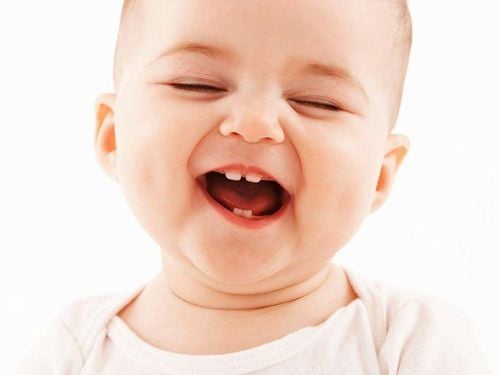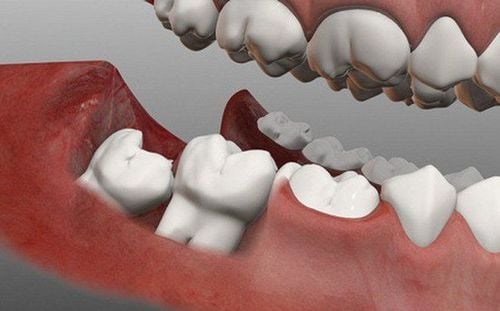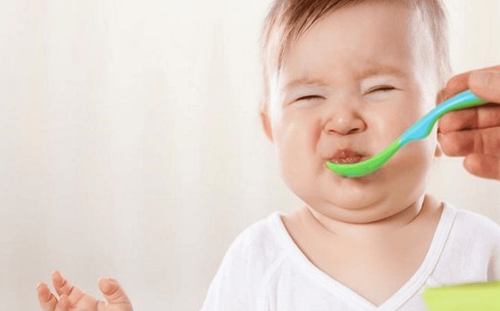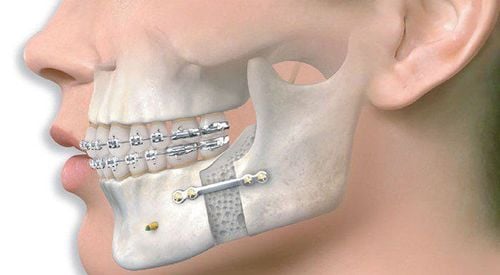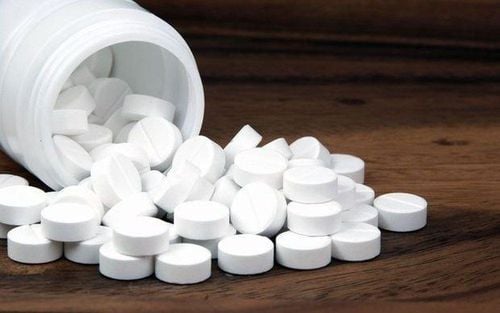This is an automatically translated article.
The article was professionally consulted by Specialist Doctor II Le Thanh Cam - Department of Pediatrics - Neonatology, Vinmec Da Nang International General Hospital.Tooth decay in children is a common phenomenon, common in children aged 1-3 years. The situation of early tooth decay causes many consequences such as worn teeth, loss of aesthetics, making children lisp... Therefore, parents need to know how to prevent and focus on treating children when they have tooth decay. .
1. What is a toothache?
The structure of teeth includes the hard outer shell, then enamel and dentin. However, the enamel and dentin layer of children's teeth is relatively thin, low calcification and sensitive, so it is very susceptible to decay and damage. When enamel is damaged, the child's teeth will gradually decay and disappear, reducing the volume of the crown. This condition is called tooth decay.Tooth decay is a common phenomenon in children 1-3 years old, although it does not cause pain for the baby and the cavity is usually shallow, not as deep as a deep hole, but has a large area, black or brown color, bottom soft in progressive stages. Tooth decay can spread quickly to other teeth if not controlled. In the end, children's teeth only have small teeth that are close to the gums, the roots of the teeth are close to the gums, affecting the children's chewing, swallowing and communication functions.
Trắc nghiệm: Sự phát triển tinh thần, vận động của bé thế nào là đúng chuẩn?
Khi nào bé biết nói, biết hóng chuyện hay biết cầm cốc là "đúng chuẩn"? Điểm xem bạn biết được bao nhiêu mốc phát triển tinh thần, vận động "đúng chuẩn" của bé nhé!The following content is prepared under supervision of Thạc sĩ, Bác sĩ y khoa, Ma Văn Thấm , Nhi , Phòng khám Đa khoa Quốc tế Vinmec Dương Đông(Phú Quốc)
2. Harm when children have tooth decay
Children begin to lose their first baby tooth at about 5-6 years old and lose their last baby tooth at 12-13 years old. If normal, for every baby tooth that falls out, a permanent tooth will erupt to replace it within 6-12 months. If tooth decay is earlier than the above-mentioned timelines, after a tooth loss, a child will not have a replacement tooth for a period of time, greatly affecting eating, digestion and pronunciation.Not only that, when baby teeth are decayed, they will carry harmful bacteria, not only affecting the tooth itself, but also having a bad effect on the permanent teeth and gums. At the same time, when the tooth decay is gradually worn down, the pulp will be exposed, the milk dentin will be exposed, the baby will feel discomfort, pain when eating, easy to cry and anorexia, directly affecting the development of the baby. children's later development.
In addition, when the baby's teeth are worn down due to tooth decay, especially the front teeth, besides the aesthetic loss, it also puts the child at risk of slurred speech. In fact, many children with severe tooth decay will find it difficult to pronounce correctly, often with more lisp than children with healthy teeth. This makes the baby talk quietly and shy away from communicating with people around.
In particular, the condition of tooth decay can also change the standard teething process of the baby, leading to the deviations of permanent teeth later. The reason is that when the tooth is damaged or damaged early, the gums will close faster before the permanent teeth erupt in this position. When the permanent teeth come in, they will face many difficulties, which may be misaligned, making them unsightly and causing pain for the child.
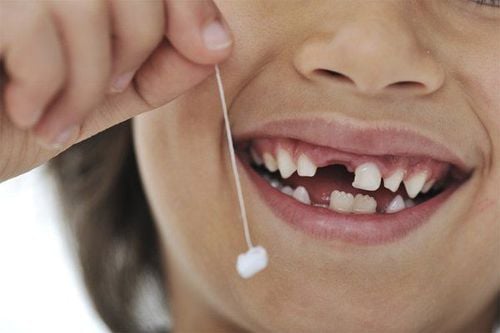
3. Causes of tooth decay in children
There are many causes of tooth decay in children, which are:Children eat too much sweets, fast food, dry foods with high sugar content and carbonated drinks, colored drinks, drink milk at night but not cleaning teeth before going to bed; Enamel hypoplasia due to premature birth, calcium deficiency, taking a lot of antibiotics or eating every day (drinking night milk has high sugar content and has strong adhesion, easy to ferment, produces acid to destroy enamel); The baby has a full jaw decay or the baby's nutrition is deficient in calcium and flour, causing damage to the baby's teeth; Mothers use antibiotics such as Tetracycline, Doxycycline while pregnant, making baby teeth not develop well, enamel quality is poor, hardness is low, teeth are easily damaged; Improper oral care creates conditions for bacteria to attack and penetrate tooth enamel, causing tooth decay; Children with jaundice also affect tooth enamel.
4. How to prevent and treat baby tooth decay?
4.1 Clean your baby's teeth properly
When the baby's first tooth erupts, it's time for the mother to take special care of the baby's teeth. Initially, parents can clean their baby's baby teeth with a soft gauze towel every morning and after each meal. After the baby eats, it is advisable to give water immediately to wash away the food, clean the teeth and throat, prevent tooth decay and sore throat for the baby.When the baby is 2 years old, the teeth are relatively complete, the baby can eat a variety of adult foods, the teeth need to be taken care of more carefully. Parents should brush their children's teeth with fluoride toothpaste to prevent tooth decay. For children who have a habit of snacking and eating a lot of sweets, parents should let their children brush their teeth right after eating to avoid tooth decay and tooth decay.
When the child is 3 years old, parents should let the child practice brushing his/her own teeth properly (brushing along the teeth from the root to the bottom, covering all 3 surfaces of the outer - upper teeth - for at least 2 times in the morning after waking up and in the evening. Before go to bed).
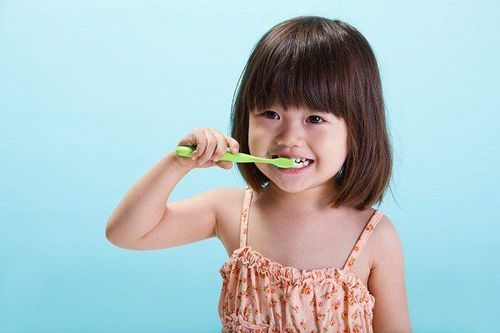
4.2 Notes on the menu for children
During the period when children are replacing baby teeth and growing permanent teeth, parents should increase foods that are good for their baby's teeth (rich in calcium and flour) into their diet such as sea fish, eggs, animal liver, and fresh milk. ... Carrots are also foods that help strengthen teeth, help gums heal quickly when injured and reduce bleeding gums. Besides, parents also need to limit children's use of foods that are not good for oral health such as carbonated drinks, soft drinks, cold water, candies,...4.3 Attention when giving medicine to children
Antibiotics are one of the culprits that cause yellowing teeth, damaged enamel, tooth discoloration and very difficult to whiten again. Therefore, to protect the baby's teeth, without a doctor's prescription, it's best not to give the baby antibiotics arbitrarily.4.4 Get rid of bad habits
To protect children's teeth, parents also absolutely pay attention not to bottle-feed or suck on a bottle while sleeping. At the same time, children should not be allowed to bite hard objects with their teeth, limit their children to eating candy, drinking carbonated water and eating at night. If the baby has a habit of drinking milk at night, then after drinking milk, parents must give the baby filtered water to rinse his mouth. However, most doctors recommend stopping night feedings when your baby is 8 to 10 months old. The reason is that breastfeeding at night will cause sleep disruption for children, underdevelopment of height, and easy damage to baby teeth. For children who have a habit of sucking on rice, parents need to check their baby's mouth after eating to avoid leftovers from sticking between teeth and causing tooth decay.4.5 Take your child for regular dental check-ups
It is best for parents to take their children to regular dental check-ups every 3-6 months. For children who have had tooth decay, early loose baby teeth, parents should take the child to a dental - jaw - facial specialist at a reputable hospital so that the doctor can accurately diagnose the baby's condition and take appropriate measures. Necessary measures to avoid baby teeth crowding or misaligning later.The problem of early tooth decay in children can be completely prevented and controlled if parents pay attention to oral hygiene, maintain scientific living habits and give their children regular dental check-ups.
In addition, parents should also apply some methods of changing habits and improving nutrition to support the child's teeth to develop better.
Besides, parents also need to supplement their children with essential micro-minerals such as zinc, lysine, chromium, selenium, vitamin B1, ... to fully meet the nutritional needs of children. The addition of these essential vitamins also supports digestion, enhances nutrient absorption, improves anorexia, and helps children eat well. Parents can simultaneously apply dietary supplements and functional foods derived from nature for easy absorption. The most important thing is that improving your baby's symptoms often takes a long time. The combination of many types of functional foods at the same time or continuously changing many types in a short time can cause the baby's digestive system not to adapt and completely not good. Therefore, parents must be really patient with their children and regularly visit the website vimec.com to update useful baby care information.






